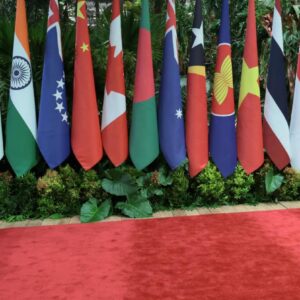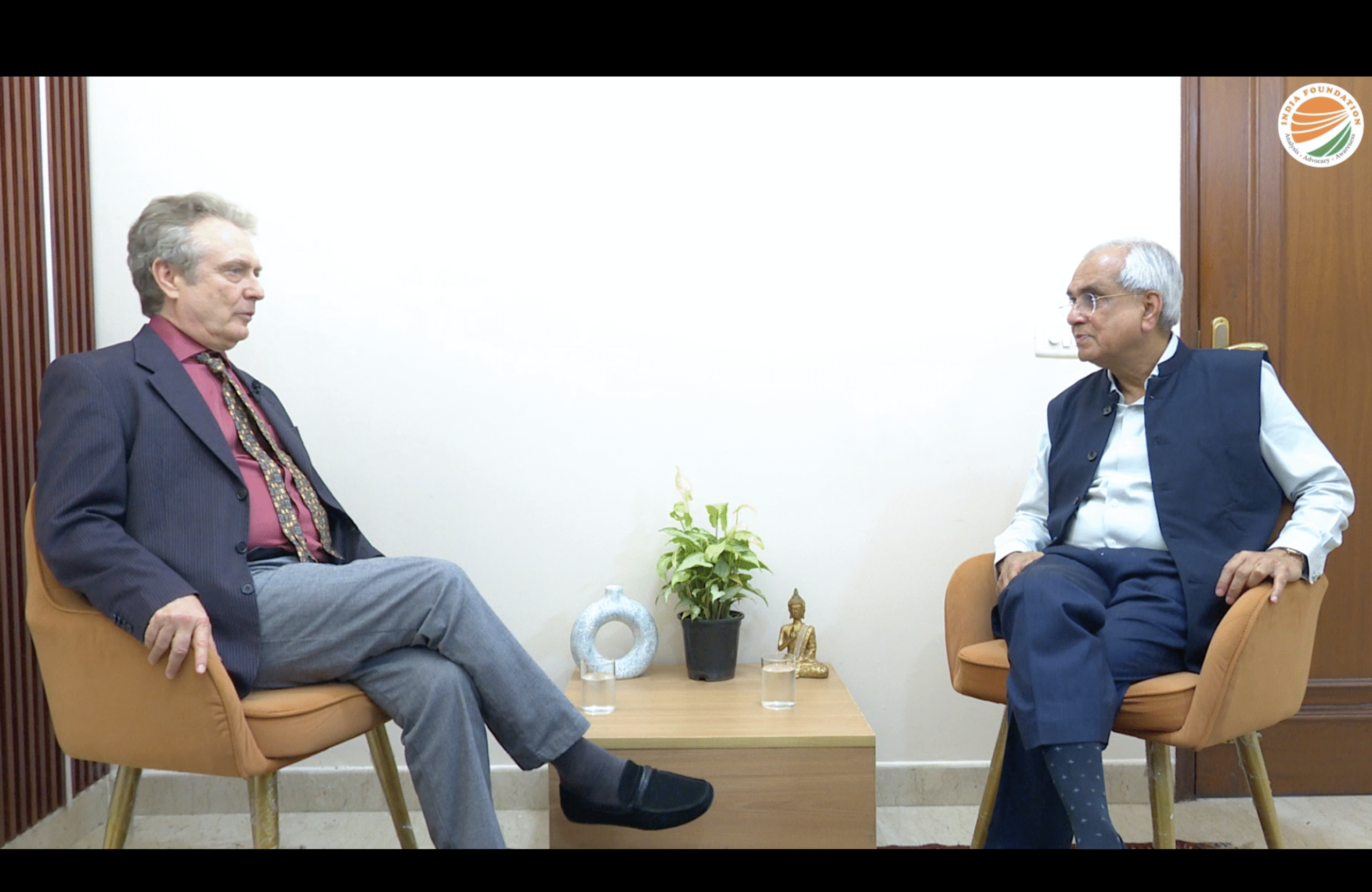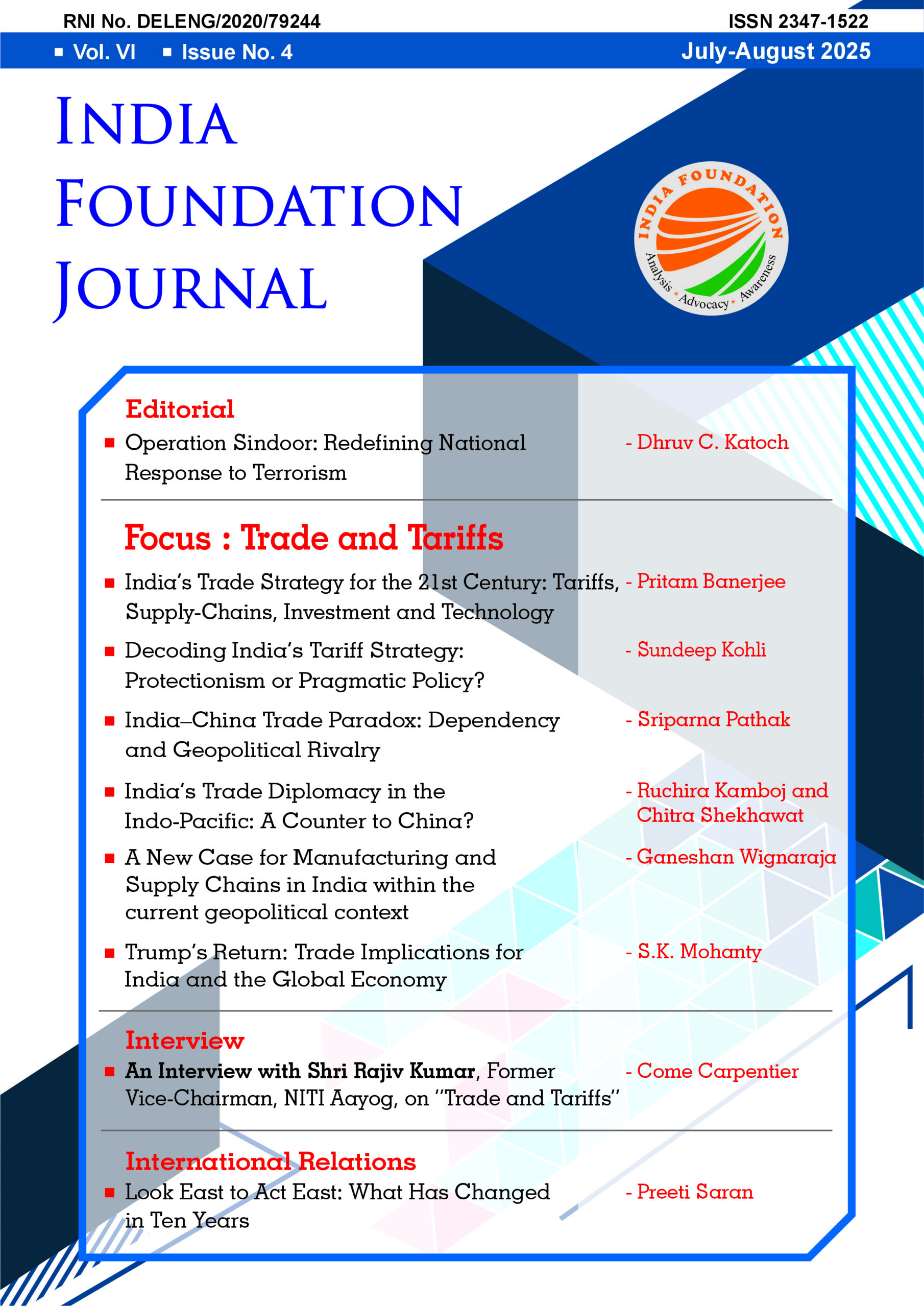Pakistan’s endemic denials notwithstanding, the Pulwama carnage and its aftermath became a catalyst to cognizable shift in regional political scenario leaving its vibrations to reach other parts of the region under discussion. IAF’s Balakot blitzkrieg is a turning point in the three-decade-old Pakistan sponsored proxy war in Kashmir. Major world powers have begun to take a pragmatic view of India obliged to react to terrorist outrage in which the limits of her tolerance are subjected to a test. States have the prerogative of demonstrating their might in situations of self-defence.
The news of India’s airstrike on Azhar’sJaish stronghold was more stunning for China; it amounted to indirect rebuff to her for her sustained effort of taking Azhar under her protective wings against the Security Council’s resolve to designate him. It took the wind out of China’s sail. The first reaction which knowledgeable circles noted was Beijing’s subtle hint to Pakistan that she had to respond to the opinion of the world community. Ever since China vetoed the resolution for the fourth time and the big three decided to take the issue to an open debate, China was ill at ease and loath to be publicly exposed.
China’s antics of making the SC drop reference to Pulwama and Kashmir from the text of the resolution is to keep Pakistan in a state of false expectancy. Nonetheless, both know that after the resolution was passed the US, UK and France conceded in their individual statements that Pulwama proved the catalyst to the passing of a unanimous resolution. This is indirect recognition of India’s right to make bigger strikes on Pakistan-based terrorist installations if the need arises. India and the US are committed to taking joint action in a counter-terrorism bid.
Suspecting that Indo-Pak spat, if allowed to escalate, would gravely impact Afghan situation and the role of Pakistan and her army at Doha negotiations, the US seriously intervened to desist both India and Pakistan from crossing the red line.
The US achieved some success in its interventionist mission primarily because of a critical financial situation bedevilling Pakistan. American authorities bluntly told her that the US would not encourage IMF to sanction loans which Pakistan would pay to liquidate burgeoning Chinese debts.Pakistan’s economy at its nadir would not sustain a war with India for more than a day.
Not losing the sight of astute statesmanship, the Western powers very carefully maintained stoicism over two developments on Indo-Pak political chessboard. One was not to dig into or even randomly underplay India’s claim of having decimated the Balakot terrorist camp, and the second was to remain non-committal about IAF Mig shooting down an F-16 fighter craft of PAF. Though at one point of time India did raise the issue of Pakistan’s infringement of the conditions of sale of F-16s by the US to Pakistan but she mysteriously did not push the matter obviously because of American pressure to refrain from giving media hype to the vulnerability of her so-called impregnable F.16. The US did not like adverse impact on the marketing of her war machine. The US and the western media somehow saw prudence in keeping the issue under wraps to the entire satisfaction of Pakistani GHQ. India, too, would not overplay Pak’s incredulous deniability. The world knew what Pakistan did not like it to know and forthwith release of Indian pilot was a face-saving rather than a goodwill gesture.
Somehow, the Indian media did not seriously debate the decision of the Modi government to give a green signal to Balakot airstrike. In the process, the recklessdomestic opposition front tried to play cheap vote bank politics and avoideddiscussing the situation from an exclusive nationalist perspective. It revealed its inherent weakness rather than an element of unbridled vengeance let loose during the election campaigning.
Modi government took ten days to frame the outlines of reacting to Pulwama carnage. The Balakot airstrike was less a tactical compulsion and more the unfolding of a decisive policy of meeting the challenge of terrorism emanating from our western neighbour. The PMO and the Defence Ministry both burnt the midnight oil in analyzing and anticipating the grave and perilous outcome of a proposed airstrike deep inside Pakistan. It meant war. India was prepared for an armed clash short of a nuclear strike. The Americans were kept informed and Beijing’s ownupdated intelligence input also spoke almost identically. Both were told that the time had come for cleaning the slate. In a grave situation like this, suspension of the ongoing election through a presidential decree would not be a surprise. That exigency, too, did not escape the notice of policy planners.This objective analysis is to be understood from repeated warnings by the Home Minister that India had to take all necessary steps to ensure her national sovereignty and territorial integrity.
When the news came next morning that PAF had tried to bombard our ammunition dumps and arsenals close to the border, the flash went from New Delhi. It was a matter of hours not days. Not more than an hour was taken for emergent exchange of communication among Washington, Islamabad, UAE and New Delhi.
Heaving a sigh of relief, President Trump made a laconic remark pregnant with meaning. He said that he was expecting good news from Islamabad. Imran Khan had to decide within minutes that Wing Commander Abhinandan, would be set free to go back to India that afternoon or the next day. The scare of a massive Indian missile attack on all airbases in Pakistan was so alarming as to force senior PAF officers to spend two or three nights in the bunkers and underground shelters. Pentagon czars would have laughed in their sleeves on hearing Prime Minister Imran Khan saying his decision to free the Indian pilot was an “expression of goodwill”.
De-escalation of tension is temporary because it is compulsive. Its stability is conditional upon Pakistan containing terrorism at home and playing a positive role in persuading Taliban for a peace deal in Afghanistan. For Pakistan, the priorities are (a) to mollify the US so that IMF loan could be obtained without loss of time, and (b) a face-saving mechanism that would help administration neither to antagonize nor fraternizing the terrorist organizations and their leaders.
At a recent news briefing, a senior US official told reporters that without getting involved in Pakistan’s internal politics, Washington expects her civil and military leaders to correct the situation. The official went on to say, “We support the fact that Prime Mister Imran Khan says right things and appears to be trying to make some changes within Pakistan, But only time will tell if he is successful in doing that.” Acknowledging that recently both civil and military leaders in Pakistan have taken steps to eliminate terrorism, the official said that Pakistan’s military was also supporting these changes. “So far, we do see support from the military to the direction that Prime Minister Khan seems to be going in,” he said.
The senior administration official noted that Pakistan was not only saying the right things, it had also taken some right steps. Elucidating what he meant by the right things, the official said that Prime Minister Khan was “very public about wanting stability in the region, pointing out how important that is for Pakistanis to prosper and to have economic development which is one of his core campaign promises”.
This statement of the American senior official gives the impression that Pakistan (meaning both civilian government and the GHQ) had found that they need to give a different direction to their state policy in the light of the ground situation. There is more of expectation than expediency in the statement of the American official, and hypnotizing that there is a mode of giving a new direction to her policy.What do we expect Pakistan to do? It has to dismantle the terror structure which is hydra-headed. The question is will that be a reality? This is not what we but what the world community and the peace-loving segments of Pakistani civil society will have to ask. To put it crudely, will Pakistan army surrender to the diktat of the civilian government which it has been toppling whenever it desired to do so?
American officials believe that the Pakistan army is on board in regard to the dismantling of the terrorist structure. If that is the case, then it is the beginning of the end of Pak army’s long – tested superlative role in the framing of the foreign policy of that country.
In summing up this analysis, the note has to be taken of the 2-day visit of US Principal Deputy Assistant Secretary of State, South and Central Asia, Alice G Wells to Pakistan on 29 April. This visit comprised two inter-connected components. The first component dealt with Afghan situation for which US Special Representative for Afghan Reconciliation Zalmay Khalilzad and his team held meetings with Pakistani officials with Wells in the chair. In the second component, Assistant Secretary Wells held extensive meetings with a wide variety of Pakistani official representatives that included top civil and military echelons with the Pakistan Army Chief Bajwa included among them. She also met with Pakistan think tank members and representatives of political parties. It is important to note that these wide-ranging talks and with a wide range of Pakistani officials (army in particular) indicate that the US wants to keep a close track on (a) What Pakistan would be doing in the context of finding a solution to Afghan crisis, and (b) what steps Pakistan will be taking to impose curbs on terrorist organizations operating from her soil against either Afghanistan or India in Kashmir. In her press conference, Secretary Wells made two very clear and unambiguous statements by way of response to the questions put to her by the media persons. She said (a) resumption of a peace dialogue between India and Pakistan depends on how far Pakistan succeeds in imposing effective curbs on terrorism and denies terrorists all facilities for conducting operations against the neighbours, and (b) How far Pakistan plays a constructive and positive role in strengthening peace and normalcy in the South Asian region. Perhaps Ambassador Wells’ threadbare expression will not go down well with Pakistan, but then Pakistan has to re-assess the consequences of a frozen and fossilized policy in the South Asian region.
(Prof. K.N. Pandita is the former Director of the Centre of Central Asian Studies, Kashmir University, Srinagar. Views expressed are personal.)



